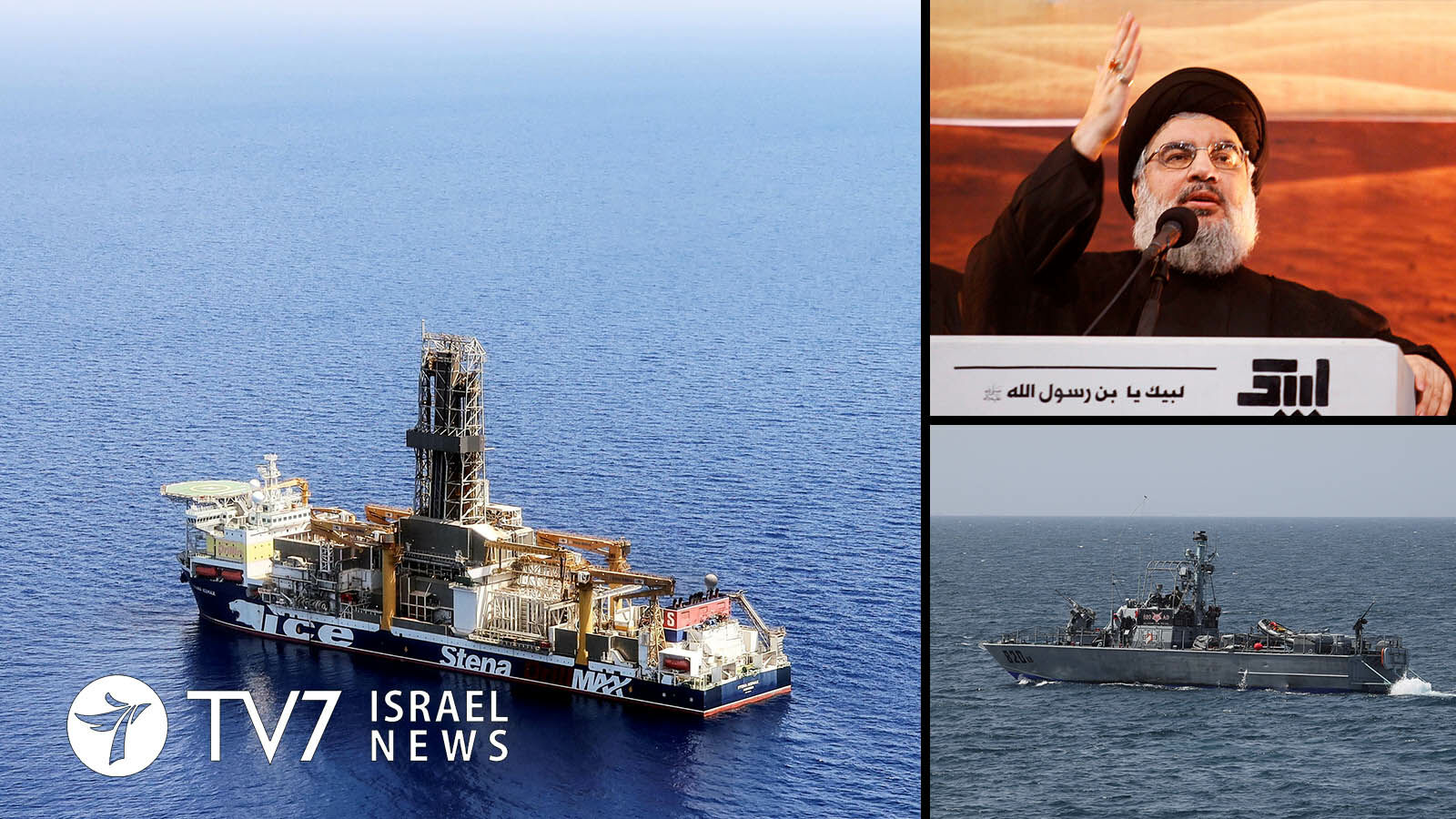The development comes amid rising tensions following Lebanon’s insistence on revising a nearly-completed deal to demarcate maritime borders with Israel.
By Erin Viner
The Energean international hydrocarbon exploration and production company has begun pumping gas to its Floating Production Storage Offloading (FPSO) facility at the offshore Karish gas field.
According to the London-based oil and gas well drilling company, the step is part of reverse flow testing procedures approved by the Israeli government, and important for FPSO commissioning process. Energean, which deployed an FPSO vessel to the site last June, announced its hopes to bring the Karish field online by the third quarter.
Karish is located about 80 km (50 miles) west of the coastal city of Haifa in Israel’s exclusive economic zone (EEZ).
Israel’s offshore exploration has long been a flashpoint of hostilities with Lebanon, as well as the Iran-backed Hezbollah terror organization. The heavily-armed terror group, which has fought numerous wars with the Jewish State, has previously warned Israel against drilling in the disputed area and threatened has threated that it is prepared to wage war against Israel over water rights.
This past Friday, Israeli Defense Minister Benny Gantz instructed the security establishment “to prepare for any scenario in which tensions increase in the northern arena, including defensive and offensive readiness,” said an official statement issued by the Israeli Ministry of Defense (IMoD).
The order followed Jerusalem’s rejection of Beirut’s demands for “amendments” to a maritime deal presented by Washington earlier this month.
The draft proposal by United States Special Envoy and Coordinator for International Energy Affairs Amos Hochstein had received a warm preliminary reception from both the Israeli and Lebanese governments.
Israel had already granted initial approval of the 10-page draft agreement, which has not been released publicly.
“We are discussing the final details, so it is not yet possible to praise a done deal; however, as we have demanded from the start, the proposal safeguards Israel’s full security-diplomatic interests, as well as our economic interests,” Israeli Prime Minister Yair Lapid said on 2 October. Highlighting that a long-sought deal would help bolster security on the northern fronter, he also emphasized that operation and production of natural gas at the Karish field would further enhance the country’s defense and economy by helping to establish Israeli energy independence.
While Lebanon’s latest reversal has thrown years of diplomatic efforts into doubt, it is not the first time the Arab Republic has demanded alteration to existing understandings.
The US has been trying to broker indirect demarcation talks between Israel and Lebanon in a process that began in 2000, to determine sovereignty over offshore oil and gas resources to pave the way for more exploration.
Israel proposed a 58:42 division in favor of Lebanon when negotiations were resumed in 2021, but an impasse was reached after Lebanon nearly tripled its claim by around 1,400 square km (540 square miles) over the initial Decree 6433 Lebanon submitted to the United Nations in 2011. That revised claim angled even farther south, placing an 860-square kilometer triangle in the Mediterranean (amounting to about 2% of Israel’s economic waters) at stake – including the northern end of the Karish reservoir which Jerusalem firmly maintains is part of its EEZ.
